Milk Thistle, or Silybum marianum, is a member of the Compositae or Daisy family and grows throughout Europe and the United States. The common Milk Thistle contains some of the most potent liver-protecting substances known to occur in nature. Since ancient times, this plant was highly valued for its nutritional and medicinal properties.
By the Middle Ages, the seeds of Milk Thistle were commonly used to treat liver disease, increase the flow of bile and as a general tonic for the liver, spleen, and gallbladder. Studies involving the chemical constituents of Milk Thistle have found this plant to contain three potent liver protecting flavonoids: silybin, silydianin, and silychristin. These three compounds are known collectively as Silymarin. Extracts of Silymarin have undergone numerous clinical trials that have confirmed its ability to protect the liver from various toxins and improve its general function.
What is Silymarin?
Silymarin extracts may reduce the toxic effects of a wide variety of poisons including alcohol, drug overdoses, and even poisoning by the Deathcap mushroom, Amanita phalloides. In a double blind-study by Feher et al., the effects of Silymarin on liver function were examined in 36 chronic alcoholics with progressive liver disease for six months.
Histological alterations showed a significant improvement in the Silymarin treated group while the placebo group remained unchanged. These results clearly indicate that Milk Thistle extracts exert hepato-protective activity and have the ability to improve liver function in chronic alcoholics.
In another study, abnormal liver function tests were observed in 49 of 200 workers exposed to solvent vapors daily for 5 to 20 years. Thirty of the effected workers were given Silymarin extracts a D compared to the remaining 19 who were untreated. The supplemented group showed a significant improvement in liver function tests and blood platelet counts.
Double blind study
In a double-blind study of over fifty patients with viral hepatitis, 28 individuals taking the Silymarin extracts showed a significant improvement in their levels of bilirubin, GOT and GTP liver enzymes. After only three weeks of treatment the number of patients with normalized liver enzyme values wre greater in the treated group. Research concluded that the use of Silymarin is helpful in the regression of acute viral hepatitis.
The mechanism of action of Milk Thistle appears to be its ability to alter hepatic cell membranes and inhibit the passage of toxins into the cells. Silymarin also stimulates the formation of new liver cells by increasing protein synthesis.
References:
Feher et al., Liver-protective action of Silymarin therapy in chronic alcoholic liver disease. Orv. Hetil, 130:2723-2727; 1989. Szilard S.,et al., Protective effect of Legalon (Silymarin) in workers exposed to organic solvents. ActaMed. Hung: 45:249-256; 1988. Fiori GP. Et al., Results of a double blind study on the effects of Silymarin in the treatment of acute viral hepatitis. Med. Klin, 73:1060-1065; 1978.
These statements have not been evaluated by the FDA. This product is not intended to diagnose, treat, cure or prevent any disease. By using this site you agree to follow the Privacy Policy and all Terms & Conditions printed on this site.

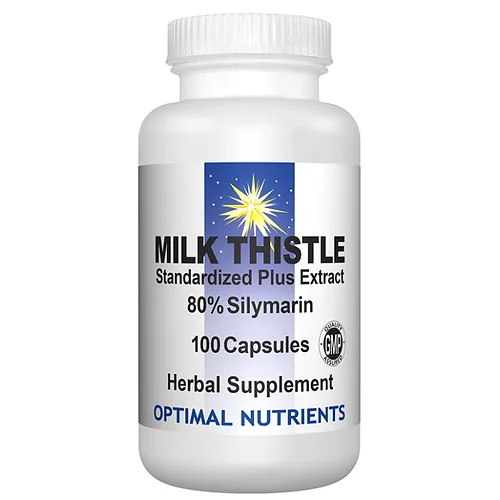
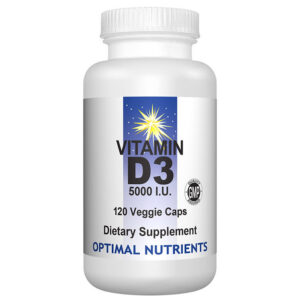
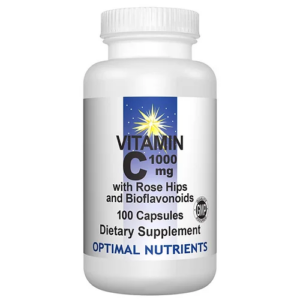
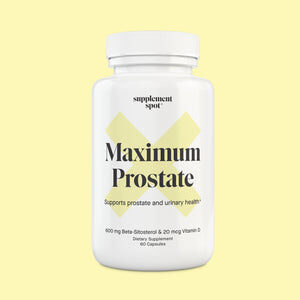
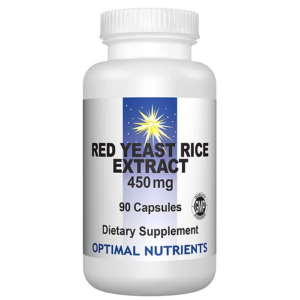
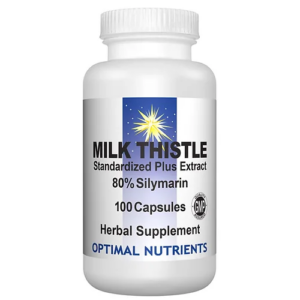
Reviews
There are no reviews yet.